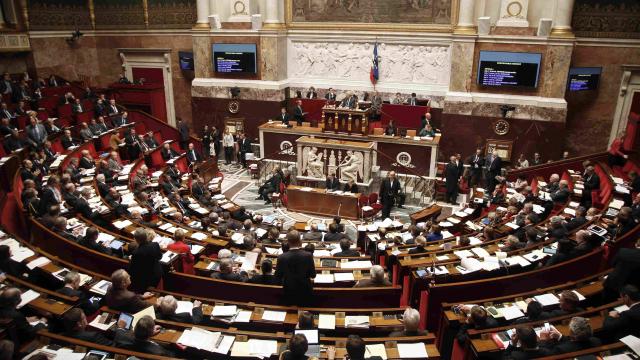The Assembly voted the inclusion of the State of Emergency into the Constitution

MPs voted on Monday night to the inclusion of the state of emergency in the fundamental law of the Constitution.
The French Parliament adopted on Monday by 103 votes against 26, Article I of the bill in the constitution the state of emergency in place in the wake of the attacks of 13 November.
This first part of the draft constitutional law provides that the state of emergency is “decreed in the Council of Ministers” or “in case of imminent danger resulting from serious breaches of public order” or in case of “public calamity “ (natural events).
The socialist groups, the Republicans (LR), the Left Radicals and IDU (centrist) have the majority voted for. The left wing of the environmental group and the “rebellious” Socialists voted against, as well as the Left Front group and part of the LR hostile deputies.
Several amendments voted
Several amendments were voted as one that entrenches the control of the Parliament on the implementation of measures of the state of emergency. Another limit to four months the first extension of the state of emergency, the extension beyond four months again requiring authorization from Parliament.
Faced with the questions of some Members, as Jean-Frédéric Poisson (Republicans), the choice of four months, the president of the UDI, Jean-Christophe Lagarde spoke, among others, a parallel with the time after which the Parliament decides on military intervention of France.
Four months, this seems “reasonable” judge Valls
The Prime Minister, that this term “does not rely on specific elements” , ruled that the term of four months “does not fundamentally change the balance in relation to what was voted for three months and gives a little more room “ . This seems “reasonable” giving “sufficient time to deal with such threats that we know and allow Parliament to monitor and to extend the necessary” , he said.
For Mr. Fish, none of these “arguments fully justifies” this passage to four months for a regime“not attentive to fundamental freedoms but still restrictive” .
Against the advice of the Government and to the anger of the opposition, a PS amendment was passed which states that “throughout the duration of the state of emergency, Parliament meets by right and the National Assembly can be dissolved. “
The government should take the examination in the Senate to reject this provision, by trimming the powers of head of state, “pose a serious challenge to the group Republicans” , said the deputy LR Guillaume Larrivé.
The deputies then undertake the review of Article 2 which extends the forfeiture of French nationality of persons convicted of terrorism and that is much disputed, both in the majority and the opposition.
The project examined by the Senate in mid-March
This article is accompanied by a regular bill which will be examined later to clarify its scope. At the request of the PS group, ordinary legislation will remove any reference to the prohibition of statelessness – meaning a return “to the disqualification for all” , binational and mononational – and specify that the ban will be a penalty “complementary” pronounced if necessary by a terrorism or criminal courts and not by the administrative authority.
Deputies vote on Wednesday afternoon by a formal vote on the entire bill that the Senate will consider in turn in mid-March.
To be finally adopted, any constitutional amendment must first be passed in identical terms by the two assemblies and submitted to Parliament in Congress at Versailles where the necessary majority of three fifths of the votes cast.
Enjoyed this? Get the week’s top France stories
One email every Sunday. Unsubscribe anytime.


